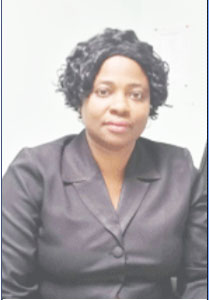The proposed five-year Strategic Plan (2018-2023) of the Regional Nursing Body (RNB), which aims to provide solutions to current challenges related to nursing and midwifery in the region ,is to be finalised and presented to CARICOM’s Council for Human and Social Development (COHSOD).
This is according to the communique released at the end of the 45th Annual General Meeting of the RNB, which met from August 7 to August 9 at the CARICOM Secretariat, in Georgetown, Guyana.
Additionally, the education and practice sub-committees of the RNB met and agreed that candidates for the Regional Examination for Nurse Registration (RENR) would have four chances over five years to write the examination, with remedial instruction being provided after the first failure. There will also be a review of the examination process of the RENR.
RNB Chair and Grenada’s Chief Nursing Officer Nester Edwards, according to the communique, said the critical next step will be the implementation of the plan, which would require ownership and dedicated resources.
At the opening of the three-day meeting, Edwards called for urgent action to address the recruitment, by developed countries, of experienced CARICOM nurses and midwives and who “are leaving in large numbers.”
Edwards warned that the nursing sector “is on the brink of a crisis brought about by the heavy migration of nurses from the region. She also reminded that “There can be no health without a workforce. No workforce without nurses and midwives.”
The strategic plan, the communique said, was based on the three strategic priorities of nursing and midwifery: education, practice, and leadership. It will assist stakeholders in achieving the objectives by way of key performance indicators spread out over a five-year timeline, and will simultaneously encourage accountability in gathering, measuring and reporting data associated with the indicators. The plan, which is being finalised and will be presented to COHSOD, the communique said, will also serve as a technical guide for managers, professionals, policymakers and other leaders in the region.
Meanwhile, it was noted that the meeting ratified a draft document on assistive nursing personnel prepared by the sub-committees of the RNB. The document outlines the definition, scope of work, certification, standardisation and registration of this cadre. It is expected that in order to ensure public safety, Member States will use this guide to address the challenges faced when standardising and regulating the training and scope of work of assistive nursing personnel. This has become necessary given the proliferation of training institutions/ entities engaged in training and placement of this category of health workers. The document will be presented to CARICOM health ministers.
In an update on collaboration with the Caribbean Examinations Council (CXC) in standardising the final clinical assessment tool for third and fourth year nursing students, the communique said, the clinical assessment tool will be used by national nursing councils and nurse educators in assessing clinical competencies of nursing students preparing to sit the RENR.
The report on the April 2018 RENR has noted an overall increase in the numbers passing the examination at the first sitting and those re-sitting, the communique said.
Meanwhile, the Nursing Council of Jamaica has called for a review of the RENR, which the CXC has managed since 2006.
“It has been agreed that a review of this examination process would be conducted. The RENR was approved by the Conference of Ministers responsible for health in the Commonwealth Caribbean and in 1993, the first RENR was introduced,” the communique said.
The RENR allows for standardisation and improvement of nursing education as well as reciprocity and ease-of-movement for registered nurses among the countries of the region.
On the resolution from the Caribbean Nurses Organisation on the number of chances at the RENR, the 46th meeting of the Education and Practice sub-committees of the RNB met and reviewed a further motion on the decision regarding the number of chances to sit the RENR.
The sub-committees in their deliberations agreed that candidates for the RENR examination would have four chances over five years to write the examination, with remedial instruction being provided after the first failure. It was also agreed that an amendment would be made to the administrative manual to reflect the decision.










